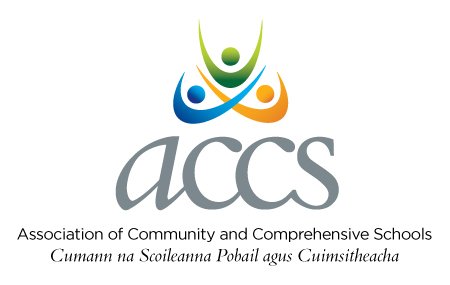School Management:
+ Trusteeship in ACCS Schools
The Education Act, 1998
The Deed of Trust for Community Schools
Instrument and Articles of Management for Comprehensive Schools
The National Trustee Forum
+ Boards of Management
Composition of Boards of Management
Appointment of a Board of Management
Termination of Membership of Boards of Management
Responsibilities of a Board of Management
School Evaluation
Specific Legislative Responsibilities
Board of Management Meetings
The Parents’ Association
The Student Council
+ The Curriculum
Curriculum Development
Junior Certificate and Junior Cycle
Senior Cycle
Guidance and Counselling
+ In School Management and Organisation
Responsibilities of a Principal
The School Year
School Plan and Policy Development
Risk Management - Good Governance
DEIS – Delivering Equality of Opportunity in Schools
Special Educational Needs
Adult and Community Education
Governance Manual for Community and Comprehensive Schools
School Records and Returns
Financial Management
Procurement for Schools
+ General Data Protection Regulation
ACCS Data Protection Policy for Schools
+ Garda Vetting
The National Vetting Bureau
Vetting of Teaching Staff
eVetting of Non Teaching Staff
Retrospective Vetting of Employees
+ State Indemnity - School Insurance
State Indemnity and the Role of SCA
State Indemnity Confirmation Statements
Work Experience
Personal Accident Insurance
Accident Reporting
Claims Management
Use of private vehicles for work
Contacting the State Claims Agency (SCA)
+ Health and Safety
Principal Health and Safety Legislation
Guidelines on Managing Safety and Health in Post Primary Schools
Use of School Equipment and Facilities - Risk Advisory Notices
Accident Reporting
Duties of the Board of Management
Fire Precautions
Disposal of Unwanted Chemical Substances
Bullying and Stress as a Health and Safety Issue
Duties of Employees
“Reasonably Practicable”
+ The Care and Management of Students
General Responsibilities of the Board of Management
Student Enrolment and Attendance
The School Code of Behaviour
Child Protection
Bullying and Harassment
Managing Chronic Health Conditions in School
Mental Health Promotion and Suicide Prevention
Parental Complaints against a Teacher
Supervision
Out of School Activities
Work Experience
Critical Incidents
Liability for Personal Property
Provision of Information to Students, Parents and Teachers
+ Religious Education and Worship
Religious Ethos of the School
Personal Suitability of Religious Education Teachers
Withdrawal of a Student from Religious Education and Worship
Religious Practice
The School Chaplain
+ ACCS Annual Convention
Convention Presentations 2018
ACCS Convention Handbook 2018
2018 Convention Handbook Contents 3
2018 Convention Handbook Contents 2
2018 Convention Handbook Contents 1
ACCS Convention 2017
Convention 2017 Presentations
Religious Practice
Last updated: Mon, Sep 1st, 2014 8:23:42 pm
The Principal of a Community School is explicitly required to facilitate religious worship. Principals of Comprehensive Schools may have no such explicit imperative, but there is an implicit requirement that they do so.
In the normal course of school life, worship covers religious services and group prayer, which are formally organised, as well as opportunities for individual prayer and reflection. To meet more fully their obligations in this regard, many schools have provided oratories or meditation rooms.
As the school going population becomes more international, it is inevitable that schools will become more multi-denominational with the consequent obligation on school management to provide an increased amount of diverse religious education. If the religion of a student requires that s/he wear a particular form of dress – headscarf, turban, veil etc, schools are advised to accommodate them unless there is reason to believe that such dress would interfere with the work of the school or proper communication with the student.

